Birds
The Budgie – A Sensitive Soul Who Needs Lots of Love
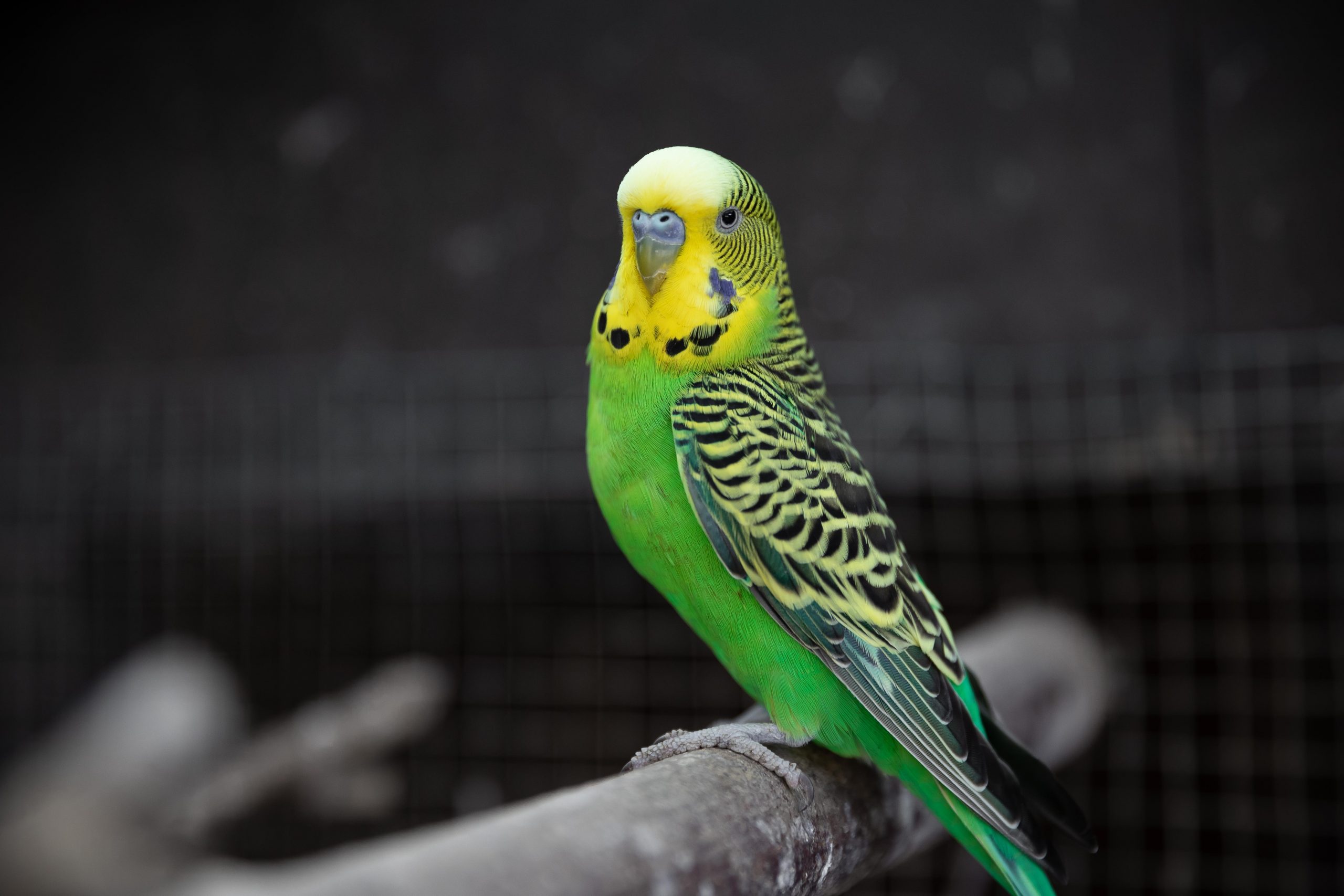
The budgerigar, also known as the budgie or parakeet, is an ideal pet if you’re living alone or if you don’t have much experience with birds before. Its small size and cleanliness make it suitable for even the most simple apartment, and its lovely coloring can be quite cheerful when you’re home alone on a rainy day. However, the budgie should not be neglected. Though they don’t need much space to live in, their emotional needs are very complex, and not meeting them will result in behavioral problems that can cause serious harm to your budgie.
What are budgies?
Budgies are also known as parakeets. They are one of the most popular pet birds, especially with owners who can’t afford more expensive parrots and cockatiels. Budgies are active, curious, and affectionate creatures that require a lot of attention. Luckily for them, they have numerous behavioral traits that make it easy to love them. If you think a budgie is right for you, here’s what you should know about these delicate little pets.
Are budgies a good choice?
Budgies can make wonderful pets, but they have a couple of issues that you should be aware of. First, many people think budgies are good starter birds for children because they’re small and inexpensive, but experts say that’s a bad idea: budgies don’t generally like being handled by kids, so kids will usually lose interest in them quickly. Second, budgies need to live in pairs or larger groups; if you get just one bird, it will likely become depressed and lonely.
Feeding budgies
Give your budgies a varied diet. While we are not saying to give them a full-scale balanced diet, budgies need to get different types of seeds and fruits as well as vegetables. This will help ensure that they don’t develop any nutritional deficiencies. Just make sure you buy from quality pet stores or reputable wholesalers so you can be sure that what you are feeding them is good for them, nutritionally speaking.
Housing your budgie
One of your first concerns as a budgie owner will be where you will house your little friend. You have many options, but choosing one that best fits your situation is important to keep her happy and healthy. Let’s take a look at some different types of housing, along with their benefits and disadvantages.
If space is an issue in your home, there are plenty of budgies who don’t need very much room at all! For example, check out our adorable dwarf budgie – these birds can be kept in small bird cages!
Keeping your budgie happy and healthy
The budgerigar or budgie is one of those wonderful bird species that can adapt to living with humans. But they do have a few special requirements. Here are some tips for caring for your little friend and keeping him happy and healthy :
The importance of exercise
Just like people, budgies need regular exercise. But it’s not as simple as letting your budgie run around on its own; you need to keep it in a safe environment so that it can’t harm itself. A budgie’s cage is its home base, so make sure there are lots of toys in there to encourage physical activity—but also monitor your budgie closely while it’s out and about, as they tend to get into mischief. You might find yourself taking multiple trips back and forth between its cage with toys or treats in your hands! Don’t be discouraged if your budgie doesn’t take to exercising right away; just give it time and space for exploration, and don’t forget to reward good behavior. The more fun you both have together, the healthier your bird will be!
What do you feed them?
Providing a proper diet for your budgies is essential if you’re hoping to keep them in good health. However, most of us tend to feed our birds too much (excess can cause obesity), so be careful, not over-feed your bird.
Why are many budgies overweight?
If you want your budgie to live a long, healthy life, you must keep him or her trim and fit. If a bird is overweight, its feathers become wet, leading to mold and yeast infections. These can be fatal if left untreated. To combat obesity in your pet bird, make sure he or she gets plenty of exercise through free flying—not only does it burn extra calories but it helps maintain muscle tone as well.
How can you keep the cage clean?
One of your first steps will be to determine how often you need to clean your budgie’s cage. This depends on how many budgies you own, their age, and their overall health. Regardless of these factors, try not to put off cleaning for too long since a messy cage is more likely to cause illness in your pet. As such, schedule time each week for cleaning—this can be quick if you do it daily or spread out over several days if it’s a less frequent task. A good rule of thumb is that whenever you notice things getting dirty, add one extra day onto your standard schedule so that you can make sure everything is fresh and clean the next time around.
What toys should I provide my bird?
Toys are essential when it comes to keeping your bird happy and healthy. Without toys, your budgerigar could get bored, which can lead to behavioral issues such as plucking or screaming. Toys come in all shapes, sizes, and materials. Most commonly you’ll see birds enjoying toys made of wood or paper materials like vine twigs or palm leaves. You must change toys frequently as a toy that becomes boring can easily become destroyed in no time at all by inquisitive beaks!
Read Also :
Ways to Reduce Aggressive Behavior in Your Budgie
5 Birds That Make Great Additions to Your Family
0 Comments
Leave a Reply
Cancel reply
Birds
7 Effective Ways to Protect Your Pigeons from Diseases
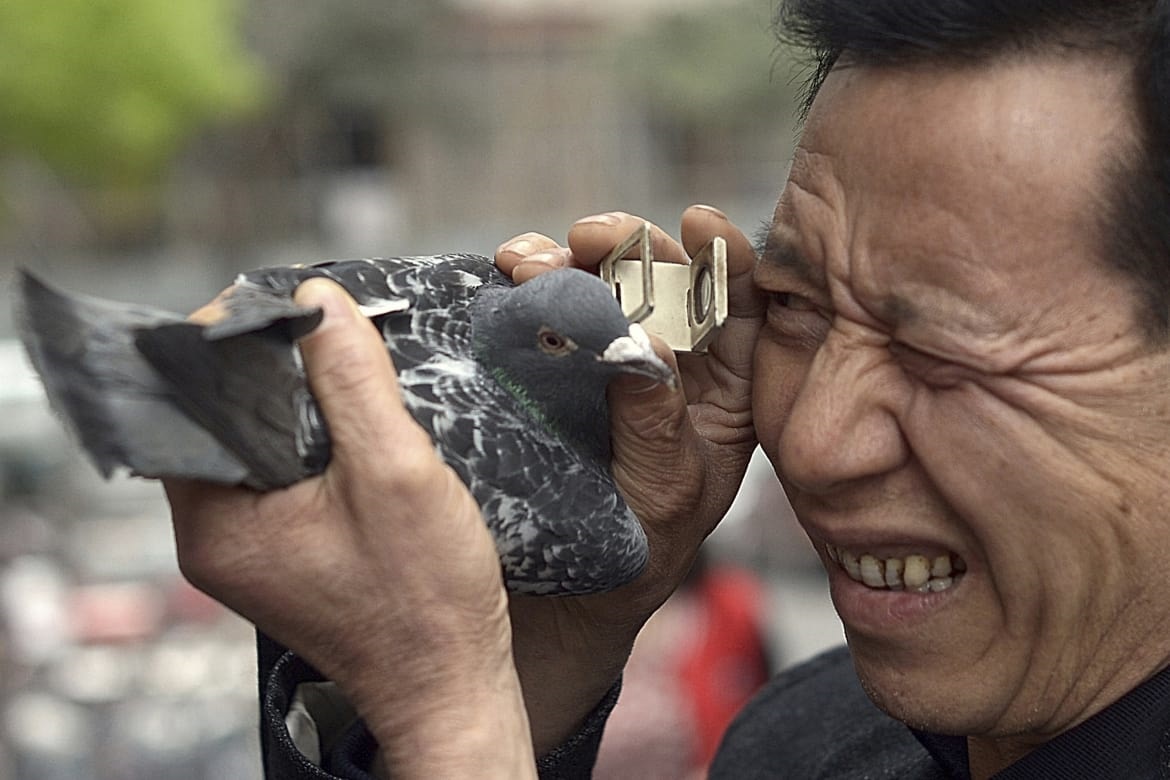
Pigeons are beloved by many as they are beautiful and gentle birds that make great pets. Unfortunately, pigeons can be prone to certain diseases that can threaten their health and well-being. If you own a pigeon or are thinking of getting one, it is important to know how to protect pigeons from diseases. In this blog post, we will provide you with seven effective ways to protect your pigeons from diseases and keep them healthy and happy.
1. Know the Common Diseases that Affect Pigeons
Pigeons, like any living creature, are susceptible to certain diseases that can compromise their health and well-being. As a responsible pigeon owner, it is crucial to be aware of these common diseases and take proactive steps to protect your beloved birds. In this section, we will explore some of the most prevalent diseases that affect pigeons and discuss how to protect them from these ailments.
One of the most common diseases that pigeons can suffer from is canker. Canker is a parasitic disease caused by the Trichomonas gallinae organism, which affects the digestive system of pigeons. Infected pigeons may exhibit symptoms such as weight loss, regurgitation, and anorexia. It is crucial to recognize the signs of canker early on, as prompt treatment is necessary to prevent the disease from spreading and causing further harm.
To protect your pigeons from cankers and other diseases, it is essential to maintain good hygiene practices. Regularly clean and sanitize their living environment, paying particular attention to their nesting areas and feeding equipment. Remove any droppings, uneaten food, or debris that could potentially harbor harmful bacteria or parasites. By keeping their living environment clean, you minimize the risk of diseases spreading and creating an unhealthy environment for your pigeons.
Additionally, providing fresh and nutritious food is essential for boosting your pigeons’ immune systems and overall health. A well-balanced diet rich in essential vitamins, minerals, and proteins helps to strengthen their immune system and enhance their ability to fight off infections. Ensure that their food is stored in a clean and dry place, away from moisture or pests that could contaminate it.
Birds
Temperature to incubate duck eggs
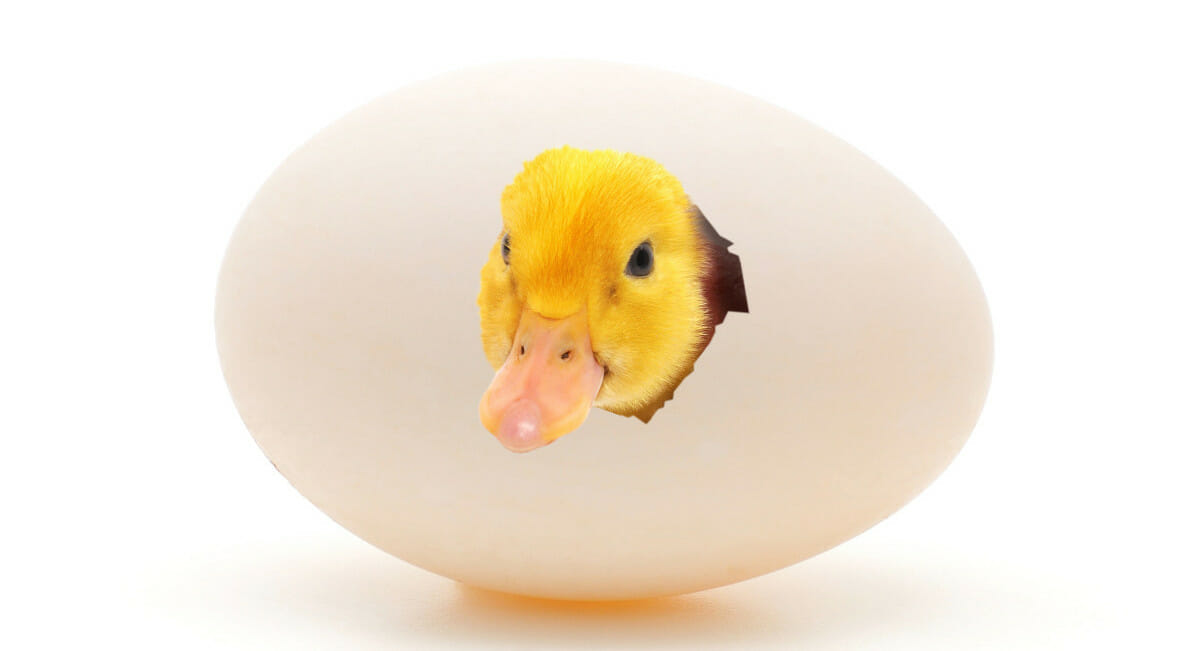
If you’re looking to incubate duck eggs, you’ll need to make sure the temperature is just right! Incubating duck eggs requires precise temperatures and humidity levels to ensure the eggs develop properly. In this blog post, we’ll go over the optimal temperature for incubating duck eggs so that you can be successful in your hatching process.
Fill a large, clean container with warm water.
When it comes to incubating duck eggs, the temperature of the water is essential. The ideal temperature for duck eggs is around 100°F (37.8°C). To ensure your eggs are incubating at the right temperature, you need to fill a large, clean container with warm water.
You can use a shallow container or an aquarium as long as it’s clean and large enough to accommodate the number of eggs you have. If you’re using a shallow container, you may need to top up the water now and then to keep the temperature stable.
Fill the container with warm tap water – but make sure you check the temperature of the water before adding the eggs. You don’t want it to be too hot as this can damage the eggs. Use a thermometer to check that the water is around 100°F (37.8°C) and adjust if necessary. Once the temperature is correct, you’re ready to add the eggs!
Place the eggs in the container.
Once you have the container filled with the desired temperature of warm water, it is time to add the eggs. Make sure that each egg is completely submerged in the water. The warmth of the water will help keep the eggs at a consistent temperature throughout the incubation period. Additionally, be sure to not overcrowd the container; leaving some space between each egg will help ensure that the eggs are evenly heated and receive adequate airflow. After all of the eggs have been placed in the container, cover the container with a lid and make sure that it is sealed tightly.
Check the temperature of the water regularly.
When incubating duck eggs, it is important to check the temperature of the water regularly. The ideal temperature for hatching duck eggs is 99.5-102°F (37.5-38.8°C). Using a thermometer, make sure that the temperature of the water stays within this range. If the temperature starts to drop below 99.5°F (37.5°C), you can add warm water to bring it back up. On the other hand, if the temperature rises above 102°F (38.8°C), you can add cooler water to bring it down. Additionally, it is important to check the temperature of the water at least twice a day to ensure that it remains consistent. This will help provide your duck eggs with an optimal environment for hatching.
Adjust the temperature as necessary.
When incubating duck eggs, it is important to make sure that the temperature stays at a consistent level throughout the incubation period. This can be done by regularly checking the temperature of the water in the container and adjusting it as necessary. Depending on the size of the container and how many eggs you are incubating, you may need to use a thermometer or an incubator to maintain the correct temperature.
The optimal temperature range for duck eggs is between 37 and 40 degrees Celsius. Make sure that you adjust the temperature accordingly if it falls outside this range. If the temperature is too low, it could lead to embryonic death; if the temperature is too high, it could cause poor hatchability. To make sure your eggs stay at a steady temperature, try to keep the water in the container warm but not hot. You may also want to use an egg turner to ensure that all of your eggs are evenly heated.

Keep the eggs in the container until they hatch.
Once you have the eggs in the container and the temperature is steady, it is important to keep them there until they hatch. This process typically takes 28-35 days. Check on the eggs daily, making sure the temperature remains constant and that the eggs are still firmly in place. You can also turn the eggs over gently every day to ensure even heat distribution. To monitor the progress of the eggs, it is recommended to handle them every week or so. Candling involves shining a bright light through the eggshell to check for signs of life inside. As hatching approaches, you may notice cracks in the shells, which is an indication that the eggs are about to hatch. Once the chicks have fully emerged, you can remove them from the container and move them to their permanent home.
Read Also :
Keeping ducks out of the pool
Raising Quail eggs
Birds
06 Tips For Properly Caring For Your Parakeets
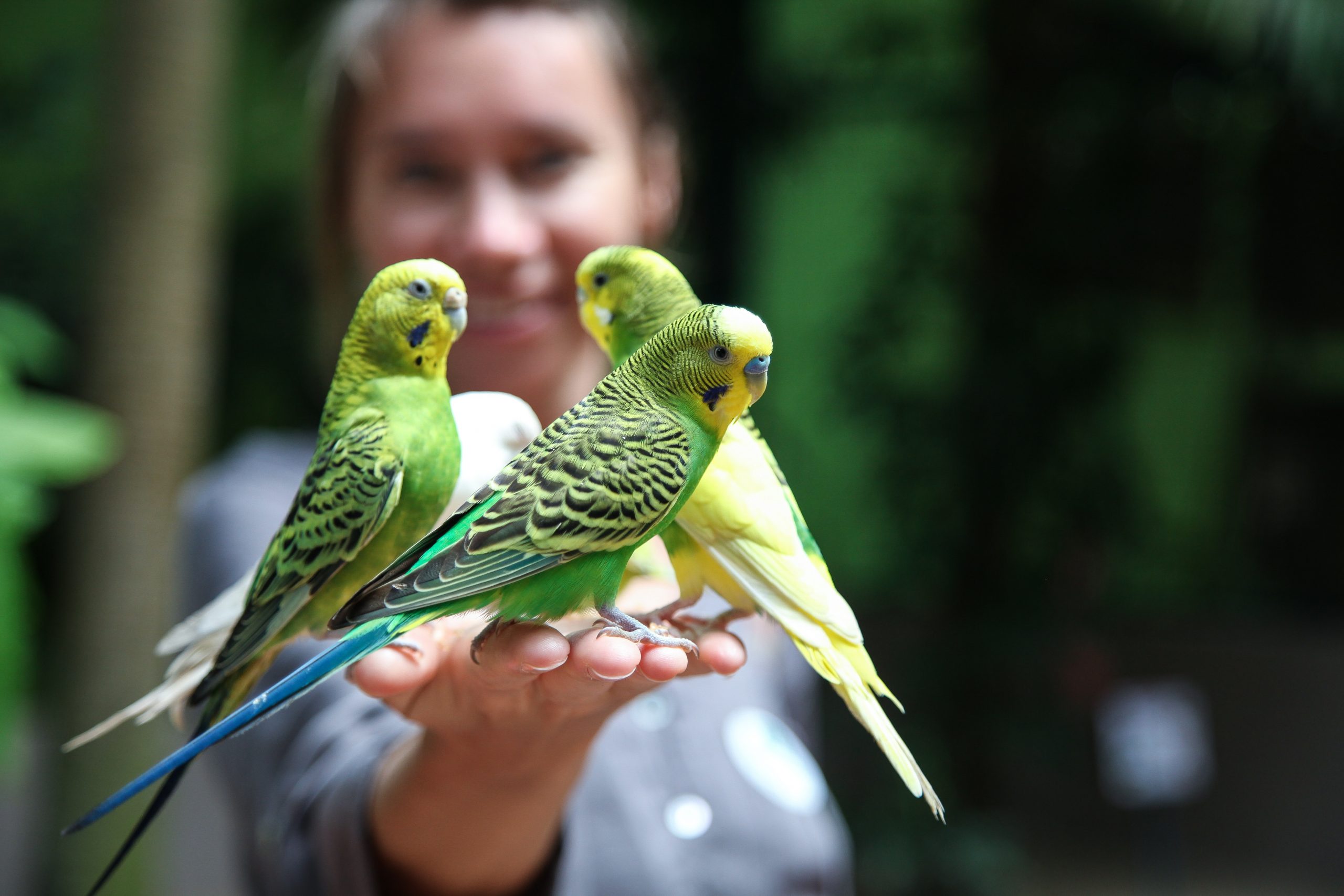
Want to make your pet parakeet’s life as enjoyable as possible? Follow these six tips for proper parakeet care, and you’ll help give them a happy and healthy life!
1) Don’t Let Their Cage Become Dirty
Be sure to clean your parakeet’s cage regularly, particularly if you see them doing their business in it. If they urinate in their cage, be sure to clean that area as soon as possible and refill their water container and food bowls. Also, wipe down any perches or other areas of their cage with a damp paper towel. Doing these things will make sure that your parakeet doesn’t get sick! What To Feed Them: In terms of feeding, it is important to ensure that your parakeet has an appropriate diet.
2) Feed Them Appropriately
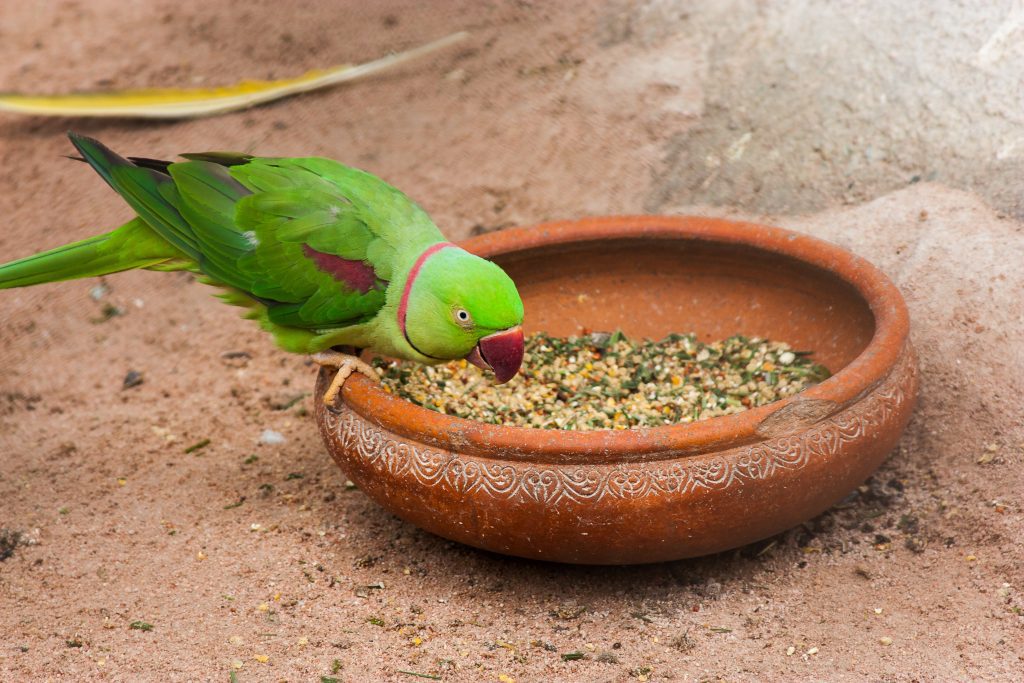
The type and frequency of food you feed your parakeet will make a huge difference in his overall health and happiness. Choose your bird’s food carefully, and avoid cheap filler foods with high sugar content. Try to mimic natural feeding habits by offering fresh fruits and veggies as well as small amounts of nuts and seeds from time to time. Also, be sure that water is clean and fresh at all times. Water bottles should be changed regularly and kept away from drafts or direct sunlight.
3) Provide Fresh Water
Fresh water is essential for parakeet survival, and it’s easy to forget to provide enough of it at all times. If you want your parakeets to thrive, be sure you provide a fresh supply of clean water at all times. The size of their bowls should not just be based on capacity; they must also be large enough that your birds can dip their heads in them without spilling water while they drink. It’s also important to make sure that no standing water remains in their bowl after each use.
4) Give Them Time Outside of The Cage
A lot of parakeet owners may feel like their pet bird is isolated, cooped up in that cage all day and night. This doesn’t have to be so. By giving them time outside of their cage each day, you allow them to stretch their wings and just have fun being a bird! Not only will your pet enjoy his or her time outside of their cage, but you’ll get some extra bonding time with him or her as well. Many experts recommend spending at least 15 minutes every day interacting with your pet birds out of their cages.
5) Always Remember That They Are Wild Animals
Keeping a parakeet in your home can make for an incredibly fun, adorable, and interesting experience, but it’s important to remember that they are wild animals. They need the freedom to fly and explore outside of their cage. You must give them time out of their cage regularly—at least once per day—to stretch their wings and enjoy themselves. This will keep them happy and healthy. If you have any other pets or children at home, be sure to watch them carefully around your new pet bird so as not to frighten or stress him/her.
6) Don’t Keep One By Yourself
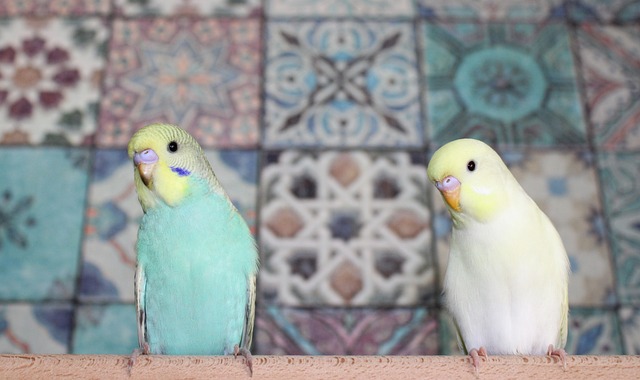
In general, parakeets make poor solitary pets. They are social creatures and do best when in a flock of at least two or three. If you do happen to have only one bird, make sure to spend as much time with it as possible to help it feel more secure. Be sure to include your pet in family activities whenever possible, even if it’s just watching TV together.
Read Also :
Get to Know Birds: The Basic Tricks You Need to Know
The Perfect Blend for Your Birds: Birds and Blend
Trending

 Cats1 year ago
Cats1 year agoDon’t Feed Your Cat These 8 Foods!

 Cats11 months ago
Cats11 months agoWhy Do Cats Spray and How Can You Stop Them? Insights into Urine Spraying in Male Cats

 Cats10 months ago
Cats10 months agoThe Ins and Outs of Cat Sterilization: Removing the Female’s Ovaries

 Cats10 months ago
Cats10 months agoPre-Vaccination Prep: Getting Your Cat Ready

 Cats9 months ago
Cats9 months agoWhy Kittens are Born Dead or Deformed

 Dogs2 years ago
Dogs2 years agoSo You’re Thinking About Getting a Poodle

 Dogs10 months ago
Dogs10 months agoWhat to Do With Your Dog’s Body After Death: A Guide for Pet Owners

 Cats9 months ago
Cats9 months agoSigns of Cat Pregnancy Week by Week




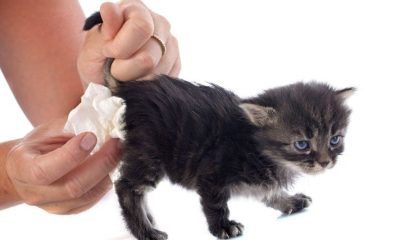













Pingback: Ways to Reduce Aggressive Behavior in Your Budgie